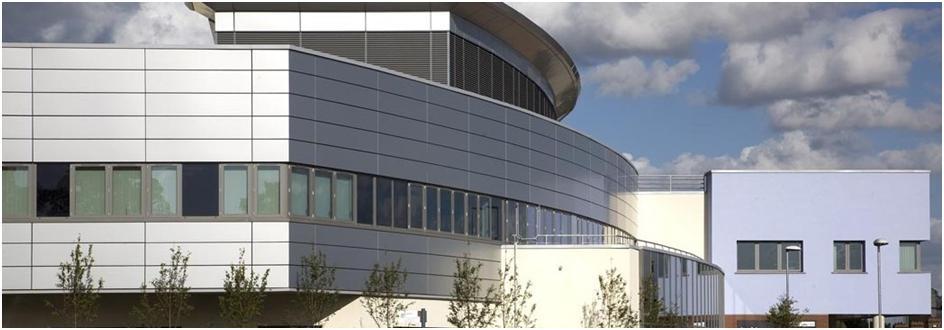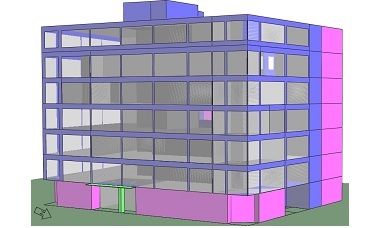Introduction
The proven success of the Energy and Sustainability team over the past decade has ensured that we now represent an increasing number of clients over a wide and diverse range of projects. Our commitment to delivering appropriate and cost-effective solutions, whatever the problem, has been appreciated by all of our clients.
The team has developed the knowledge and experience to resolve all energy and environmental issues, from metering and monitoring to auditing and carbon management strategies. Using the latest dynamic software to produce building energy models, we are ideally placed to advise on the impact of site improvements on energy ratings (EPCs).
We remain abreast of all current legislation and funding options, which enables us to advise our clients of any risks and opportunities that may arise.
Our holistic approach to building services operations allows us to naturally blend sustainability with practical solutions, whilst also identifying opportunities for energy savings.
Energy Management and Net Zero Carbon
Within our Energy Audits and Carbon Management Plans we aim to assess the current performance of a building or site and identify energy and carbon reduction measures with estimated costs and savings. We also produce Net Zero Carbon action plans with realistic targets for year on year improvements. Our extensive knowledge of how buildings operate enables us to ensure our energy management measures are cost-effective and practical. We also provide an ‘Energy and Water Management’ service for the monitoring of a large portfolio of buildings with regular reporting on consumption. This includes industry benchmarking and recommendations for further investigations into any highlighted areas of concern.
Environmental Consultancy
Our Environmental Consultancy service gives us the opportunity to work with a building or portfolio over a sustained period of time through a regular programme of auditing and reporting to suit your needs. Through monitoring and analysis, we are able to identify inefficiencies, recommend energy saving measures and report on successes. With complementary services such as occupier recharging and reporting we are able to make a real difference to the sustainability and environment of these properties.
BREEAM In-Use
BREEAM In-Use is a leading sustainability assessment and certification scheme which looks at the asset life cycle, operation and environmental performance of existing properties. In accordance with scientifically based criteria, assets are assessed across a number of categories including; Health and Wellbeing, Energy and Water. Be it a whole building or a single floor, our team of assessors can assist and guide you throughout your certification journey.
Fitwel Certification
Fitwel is an international certification system that takes an integrated approach to how the design and operations of real estate assets can improve occupier physical, mental and social health. The strategies have been developed on evidence-based and practical solutions which can be applied to any asset regardless of the size, age or location. Our Fitwel Ambassadors are best placed to help you in operating and optimising your buildings for occupier health.
Energy Performance Certificates and Improvement Reports
With a validity of 10 years and a requirement on almost all commercial properties when constructed, sold or let, we can provide EPCs to help our clients meet the requirements of the Energy Performance of Buildings Directive.
We can also provide EPC Improvement Reports to assist in minimising the risk posed by the Minimum Energy Efficiency Standards (MEES) legislation which prevents buildings from being let or sold if certain ratings are not met.
Our clients benefit from our extensive knowledge and unique collaborative approach which ensures our reports are clear, of the highest quality and provide a solid basis for future planning discussions.
Air Conditioning Inspection Reports (ACIs)
A requirement of the Energy Performance of Buildings Directive, air conditioning inspection reports are required every five years on systems with an effective rated output of more than 12kW. Our certified assessors will inspect to TM44 guidance and detail opportunities to improve the efficiency of installed systems.
Energy Metering and Infrastructure Analysis
In our experience, it is quite common for users to have a lack of confidence in dealing with the metering data within a building. When it comes to energy metering and occupier recharging, it is especially important to be confident in the figures given the amount of money often involved. For this reason, we have developed our Metering and Infrastructure Analysis service in order to help clarify how power is distributed throughout a building and how the costs should be apportioned. Additionally, we have provided Metering Strategy reports to help our clients devise appropriate cost-effective metering solutions which also maximise the potential for energy management works going forward.
Energy & Environmental Management Systems
ISO 14001 and 50001 are Energy and Environmental Management Systems which have become increasing popular in the last few years. We believe 14001 and 50001 accreditation can bring many benefits to our clients, including the recognition of a commitment to sustainability and helping to develop a long-term plan for improving environmental performance. However, achieving accreditation is not easy and the amount of preparation can be daunting and very time-consuming. Which is why we offer a service that assists with the process wherever needed, including preparing 14001 and 50001 documentation, carrying out internal audits, training staff, and liaising with third-party auditors.
Energy Saving Opportunity Scheme (ESOS)
ESOS affects large businesses (over 250 employees or a turnover of over £44 million) and requires mandatory Energy Audits to be carried out every four years. These audits must include a review of the total energy consumption of the organisation, including energy used in buildings, transport, and processes. The audits should identify cost-effective energy saving opportunities and must be reviewed and signed off by a board-level Director and an ESOS Lead Assessor. With a Lead Assessor in our team, we are well-placed to help you or your clients with ESOS compliance.
Heat Network Regulations
The Heat Network Regulations 2014 affect any Landlord responsible for communal heating, cooling, or hot water networks. All ‘Heat Suppliers’ must notify the National Measurement Office (NMO) about their heat networks every four years, and undertake a metering viability assessment to determine if heat meters should be installed (the viability assessment is under consultation). If heat metering is found to be financially and technically viable, then metering must be installed to allow tenants to be accurately billed for the heating and cooling they are supplied. As energy engineers, we are able to assist with completing the notification forms and viability assessments, so please do get in touch if you think these regulations apply to your buildings.
EMMA
Our audits are conducted with the property industry’s most intelligent Engineering Management and Maintenance Application (EMMA).
Inspired by client feedback, EMMA is our purpose built solution to modernise and simplify property facilities engineering. EMMA has been developed exclusively by us, from the ground up, to offer the unique functionality our clients have requested. This innovative application includes an interactive dashboard, a range of reports and the tracking of property and service partner progress.
Site Info
Site Info is the quick and easy way to store, search and share property documentation without needing to sort through any hardcopy or disc indexes.
Our unique cloud document solution provides instant access to drawings, O&Ms, certificates and reports remotely and securely.


